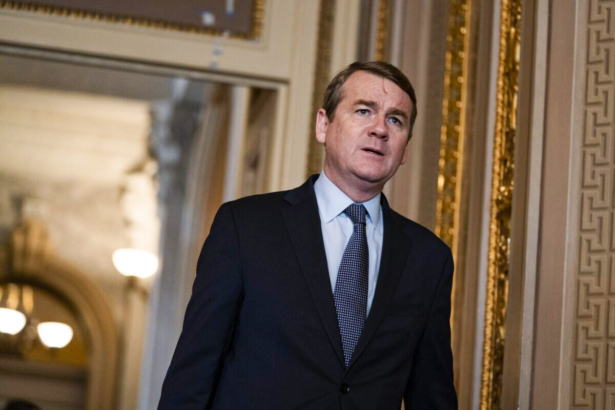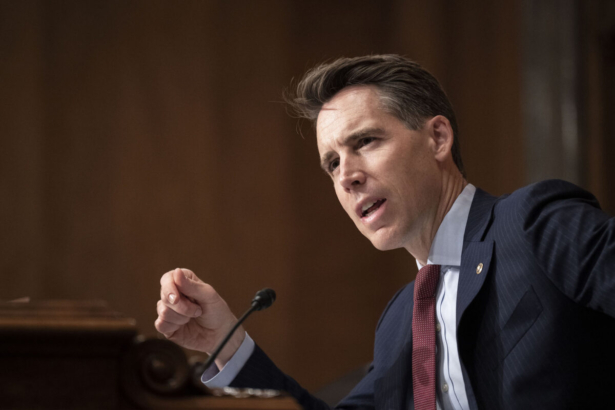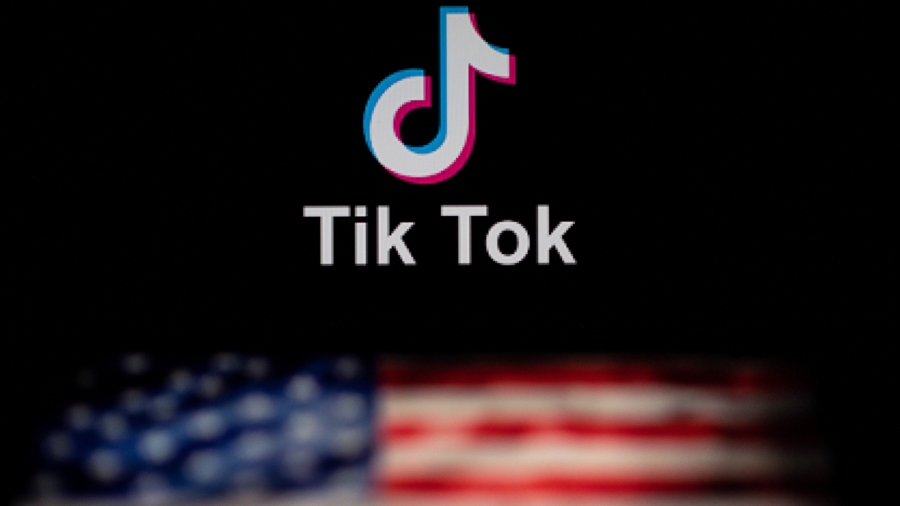Sen. Michael Bennet (D-Colo.) has called on Apple and Google to remove TikTok from their respective app stores, arguing that no company subject to “dictates” by the Chinese Communist Party (CCP) should be allowed such broad access to American audiences or harvest their data.
Bennet made the appeal in a Feb. 1 letter to Google parent Alphabet CEO Sundar Pichai and Apple CEO Tim Cook.
“TikTok poses a unique concern because Chinese law obligates ByteDance, its Beijing-based parent company, to ‘support, assist, and cooperate with state intelligence work,’” Bennet wrote.
“Beijing’s requirement raises the obvious risk that the Chinese Communist Party (CCP) could weaponize TikTok against the United States, specifically, by forcing ByteDance to surrender Americans’ sensitive data or manipulate the content Americans receive to advance China’s interests,” he continued.
“No company subject to CCP (Chinese Communist Party) dictates should have the power to accumulate such extensive data on the American people or curate content to nearly a third of our population,” Bennet wrote.
“Given these risks, I urge you to remove TikTok from your respective app stores immediately,” he added.
The Epoch Times has reached out to Apple, Google, and TikTok for comment.
TikTok has previously denied that it is controlled by the CCP.
With the appeal, Bennett stands alongside numerous Republicans who have sought to curb TikTok’s growing reach in the United States.

‘Backdoor Into Americans’ Lives’
Sen. Josh Hawley (R-Mo.) recently introduced legislation to ban TikTok from distribution in the United States, arguing that it gives China’s communist regime a way to violate Americans’ privacy.
“TikTok is China’s backdoor into Americans’ lives,” Hawley said in a statement on social media. “It threatens our children’s privacy as well as their mental health.”
“Last month Congress banned it on all government devices. Now I will introduce legislation to ban it nationwide.”
TikTok pushed back on the move, saying that a ban on the app would not solve Hawley’s concerns.
“Sen. Hawley’s call for a total ban of TikTok takes a piecemeal approach to national security and a piecemeal approach to broad industry issues like data security, privacy, and online harms,” said a TikTok spokesperson in an earlier email to The Epoch Times.
During a hearing before the U.S. Senate Committee on Homeland Security and Governmental Affairs in September 2022, TikTok CEO Vanessa Pappas faced tough questions from lawmakers about the social media app’s ties to the CCP.
Hawley cited a report from Forbes indicating that around 300 current TikTok or ByteDance employees were members of Chinese state media.
“Are there members of the Chinese Communist Party employed by TikTok or ByteDance, or no?” Hawley asked.
Pappas replied that no person who “makes a strategic decision at this platform” is a member of the CCP, but added that the company doesn’t vet its employees for their political affiliations.
“Your company has a lot to hide. You’re a walking security nightmare, and for every American who uses this app, I’m concerned,” Hawley said at the time.
Pappas also testified that the China-based employees of TikTok parent ByteDance could access Americans’ user data.

TikTok in the Crosshairs
In December, the Senate voted unanimously to pass legislation that would ban TikTok on government phones and devices. The “No TikTok on Government Devices Act” was included as a provision in the omnibus spending bill.
The legislation requires that the Office of Management and Budget enact a ban on TikTok from government devices and networks by Feb. 27. It would also prohibit all transactions with TikTok parent ByteDance and require the director of National Intelligence to report how the Chinese regime uses the app to “monitor or manipulate” U.S. audiences.
In a Jan. 27 letter to Shalanda Young, director of the Office of Management and Budget (pdf), Hawley urged the Biden administration to implement the ban “expeditiously.”
The U.S. armed forces have prohibited TikTok on military devices and in the GOP-controlled House, the Foreign Affairs Committee plans to hold a vote this month on a bill aimed at blocking TikTok’s use in the United States.
TikTok rose in popularity in the United States in 2017 after ByteDance acquired Chinese-owned social media company Musical.ly and paired its Santa Monica office with TikTok.
In 2020, then-President Donald Trump sought to block new users from downloading TikTok and ban other transactions that would have effectively prevented TikTok’s use in the United States. That move, however, was rebuffed by the courts.
More than half of all states in the United States have barred TikTok from government devices in recent months, with Maine being the latest to join the ban.
ByteDance has said that China’s communist regime cannot access the personal data of U.S. citizens or manipulate the app’s content.
TikTok Chief Executive Shou Zi Chew is due to appear before the U.S. House Energy and Commerce Committee in March.
Andrew Thornebrooke and Reuters contributed to this report.
From The Epoch Times

